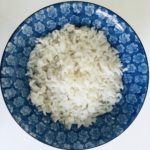 One of my main goals in writing a blog is to raise awareness about the conditions associated with celiac disease and gluten intolerance, in hopes that people find answers and get well. Multiple sclerosis, a disease of the central nervous system, is one of those conditions that has been linked to celiac disease, but not much research has been put forth. I could point to anecdotes from people I know who have successfully relieved their symptoms of multiple sclerosis with a gluten-free diet, and some people would be satisfied with that. There are others who like to see research and proof before they will believe in a treatment and make such a radical change in their lifestyle. I understand that thinking too, which is why I try to bring in the studies, if available, to back up the claims.
One of my main goals in writing a blog is to raise awareness about the conditions associated with celiac disease and gluten intolerance, in hopes that people find answers and get well. Multiple sclerosis, a disease of the central nervous system, is one of those conditions that has been linked to celiac disease, but not much research has been put forth. I could point to anecdotes from people I know who have successfully relieved their symptoms of multiple sclerosis with a gluten-free diet, and some people would be satisfied with that. There are others who like to see research and proof before they will believe in a treatment and make such a radical change in their lifestyle. I understand that thinking too, which is why I try to bring in the studies, if available, to back up the claims.
There is a new study on the prevalence of celiac disease in multiple sclerosis, published in the journal BioMed Central. Below is my summary of the study, but be sure to read my comments after to see that the number of MS patients with a gluten sensitivity may be even higher than suggested in the results of the study.
First, they analyzed 72 MS patients, who had the Relapsing-Remitting form of Multiple Sclerosis (RRMS), characterized by intermittent episodes of relapses and prolonged remissions (this type makes up 80% of MS cases)
- They detected positive Tissue transglutaminase 2 (tTG-2), a blood marker for celiac disease, in 7 MS patients (10%)
- They detected mild or moderate villous atrophy (Marsh III type) in duodenal biopsies, in 8 MS patients (11.1%). Villous atrophy, or flattening of the nutrient-absorbing villi in the small intestine, is indicative of celiac disease.
- Overall prevalence of celiac disease in MS patients was between 5-10 times higher than the frequency found in the general population.
- All the celiac patients were put on a gluten free diet and all of them improved considerably both with respect to gastrointestinal and neurological symptoms in the follow-up period.
Then, they tested the MS patients’ 126 first-degree relatives.
- They found that 23 out of the 126 first-degree relatives (32%) had celiac disease.
MY THOUGHTS ON THIS STUDY:
At first I thought that 11.1% of MS patients having celiac disease is a statistic to pay attention to. But then I read the study more carefully, and saw this sentence buried in the text: “We also discovered several duodenal lesions in 21 (29%) of RRMS patients and mild villous atrophy in 8 (11.1%) of them.” Duodenal lesions in 29% of MS patients! The duodenum is the first section of the small intestine, and lesions are areas of abnormal tissue. So I investigated further, and found that according to the University of Chicago Celiac Disease Center, “celiac disease can cause patchy lesions in the duodenum.” Perhaps those people with duodenal lesions were borderline celiac, or even celiac, and should have been counted.
It’s not clear from the study whether it was 21 patients with duodenal lesions PLUS 8 with villous atrophy, or if the 21 included the 8. If they were separate, then it would be 29 patients out of 72, which would be 40% of MS patients with celiac or borderline celiac! Now that’s a stat that would turn heads!
And, as we know from experience and recent studies, gluten sensitivity is real, and considered a separate condition from celiac because gluten-sensitive people don’t necessarily have the villous atrophy that defines celiac disease. They do, however, often display neurological symptoms.
The conclusion of all this? It’s as was stated in the study:
All of these findings, together with the high prevalence of CD in first-degree relatives, support a frequent association with gluten intolerance in RRMS patients.
You can read the full text of the study at BioMed Central.
The comment section is a great place for anyone with MS to add his/her own experience with a gluten-free diet. Your comments are so valuable to those seeking help.







Ellen says
Thanks for this. Nine years ago I tested positive for the non-celiac specific gliadin antibodies. I had severe unexplained chronic pain and overwhelming fatigue. I’d also had a host of GI symptoms since childhood that read like a checklist for celiac disease. I’d actually thought eating was supposed to be painful, and intense gas and diarrhea was normal. Also in the immediate previous few years, I’d developed all kinds of food allergies that had left me with a swollen throat and itching most of the time.
I will be forever grateful to the progressive doctor I saw back then, who said that I could go through with a biopsy to see if it might actually be celiac, or “since you have so many inflammatory problems already, you could just try the diet for four months and see if it makes a difference.” I had no idea what kind of “difference” I was supposed to be looking for. Then one day, after two months on the diet, I had the worst bout of GI symptoms yet. It was like what I normally felt like, but worse. And as soon as that passed, the gut pain, gas, diarrhea–the lot–that I’d had for as long as I could remember vanished. It was as if all of the offending inflammatory substance had to work its way through and out. Up to then, I would never have left the house without Tums and Pepto-Bismol. I now haven’t touched the stuff in 9 years.
Aside from a vast improvement in my GI symptoms, I found that the longer I was on the diet, the more controllable my pain became. I just felt more of a sense of well-being that I hadn’t had before that is hard to explain. Even my overall level of anxiety improved noticeably.
Unfortunately, though, my neurological symptoms and fatigue, while better, did not improve dramatically. I was diagnosed with adrenal failure 6 years ago (another celiac-related condition, along with thyroid problems which I also have). Four months ago I was finally diagnosed with MS. The diagnosing neurologist told me that the chronic pain and symptoms I’d had since before going gluten free were almost certainly from undiagnosed MS.
Given the substantial improvements that I did have after going gluten free, I have no doubt whatsoever that had I still been eating gluten this past decade, my pain and disability would be much, much worse and my MS would have progressed more by now. It is so disturbing that many people who have positive blood results of the sort that I did are told to forget them, and that they mean nothing. It will just be dismissed as not being celiac disease.
As a side note, my paternal grandfather died of stomach cancer, and one of his sons, my uncle, died of duodenal/colon cancer. This uncle had spent a lifetime with GI pain, gas and diarrhea just like I’d had. I urged him to go gluten free, or at least get an antibody test, but he dismissed me with irritation since, of course, if that actually had anything to do with him, his doctors would’ve tested him for it. Frustrating is hardly the word.
Cherie says
I find this very interesting. My father has MS. I am in the process of going through the testing for MS. I feel my symptoms are celiac or gluten intolerance related, but my doctors feel it is MS. So, I set up an appointment with a gastroenterologist. I know the symptoms are similar and I am hoping for a gluten related diagnosis. At least that is something I already deal with with Abigail. (My father lives on the other side of the country in Canada.)
I think it would be interesting to see if I, being the 1st degree relative, have the gluten issues, since Abigail being the 2nd degree relative does. The correlation is bizarre. I do not think it could be just a coincidence.
Anyway, thanks again for the great article.
~Cherie~
liz says
i was diagnosed with RRMS five years ago and have noticed that diet plays a huge role in how the disease affects my body. i have only had two relapses and both occurred during periods where i was eating meat. i had been a vegetarian, then went back to meat-eating for two periods of time. since then i have completely given up meat, as well as a lot of dairy. doing that, i end up eating a lot more gluten-filled foods. i’ve noticed that when i am eating less of them, i definitely feel better, when i start carb loading i feel sluggish. i just finished reading the book “eat right for you blood type” and found that the research there totally coincides with what i have found myself through trial and error and seems to line up with the thinking in your post as well. definitely worth a shot. if anyone with MS has suffered an intense relapse they will probably agree that giving up meat/dairy/gluten is worth it to enjoy a symptom/relapse free life! thanks for the article.
liz says
i should add that i am blood type A, which research in the book i mentioend above suggests has a sensitive immune system and GI tract. the doctor who wrote the book suggests that type A’s avoid wheat. i suppose this research might not line up for everyone, but for me (a type A with RRMS) it all makes sense.
Beth says
Liz, you probably know about Dr. Roy Swank and Dr. McDougall. They both have done a lot of research regarding MS and diet and found that meat, dairy, eggs as well as gluten contribute to MS. People with MS have written to Dr. McDougall and Dr. Swank (who died recently in his 90’s) and thanked them for helping them alleviate symptoms. Wish I could get one of my cousin to listen, but she’d rather take shots and have a hysterectomy because the doctor told her to!!!! I don’t trust too many conventional doctors. Anyway, I am also a gluten-free vegan now and have found my inflammation has gone away. I don’t eat soy though because it causes problems (read “The Dark Side of Soy” – or look at the comments on Amazon). However, there are a lot of better tasting beans out there anyway. Good luck and glad you are getting better!!!
Bev says
There is still an almost total lack of celiac awareness in most non-celiac specialities. The link between the two conditions might be as simple as MS doctors not screening patients to rule out those celiac disease who present with similiar symptoms.
Brain calcifications, white matter lesions and ataxia are known complication of untreated celiac but MS specialists seem to be unaware of the similarities. Expensive treatment focused on the treating the symtpoms will not work if gluten intolerance/celiac is the underlying cause.
wwww.direct-ms.org is an interesting site in that it advocates treating MS with a gluten-free & milk-free diet as well as increased serum levels of Vitamin D.
Dr. Michael Horlick, a noted Vitamin D researcher in the US, investigates fatigue and chronic pain as symtpoms of Vitamin D deficiency, which is common in un-dx celiacs.
And in those countries that are finally starting to regularly screen young children, it will still take decades to see diagnosing more with celiac will result in fewer cases of MS & other autoimmune disorders.
Andrew Warren says
Good study, and interesting that so many MS patients could benefit from gluten free diet, but definitely not right to assume that all the other duodenal lesions found were due to coeliac disease.
A lesion is any abnormal tissue, which could represent a polyp, an ulcer, or a miriad of other conditions other than coeliac disease. Coeliac disease is certainly not the commonest, or even the second commonest cause of duodenal lesions.
That said, 11% is a significant proportion of patients, and it seems that if I had MS I would consider trying a gluten free diet for a while and seeing if it helped. If so – great! If not – no harm done.
Alison says
Andrew,
I see your point, but I also think that the criteria for celiac disease is strict and those lesions might not have “counted” as celiac. The lesions could have been a result of gluten damage. My husband, for example, had ulcers before going gluten-free. Now, no more ulcers.
Alison says
And Andrew, I agree — why not try the diet?
Mew Maurer says
I was just wondering. Are tax reductions only available to those with CD? That’s what I understood. Or, can gluten intolerant persons claim it, too?
Well written and imformative article!
kitINstLOUIS says
Re: Tax Deductions. They aren’t worth the trouble of compiling all your receipts. Few people qualify, and when they do, it just isn’t enough savings to be worth all the work.
joyce sewart says
I have MS and I am gluten intolerant. Thank goodness that one doctor suggested I get a fecal diagnosis for gluten.(my blood test showed negative). I am now 85% better after going gluten,dairy & legume free. Too bad my neurologist doesn’t feel a connection.
kitINstLOUIS says
Joyce, their is a real dearth of information about autoimmune disease and its associations in every specialty. Even many rheumatologists are way behind on the things that should directly inform their specialty.
What is so frustrating is that many of us have two or more autoimmune diseases that interact. It’s very frustrating to have to educate every doctor for every specialty that treats you. They don’t like that.
kitINstLOUIS says
Mew, the only federal tax deductions allowed is the different between what you would spend on regular bread, etc. vs. gluten free. So if you usually spend 2.49 on wheat bread, and your gluten free bread is 5.99, you can deduct 2.50. I haven’t heard of one person who has tried to do this who said it was worth the effort. I think your personal medical expenses have to reach $10,000, too. Check celiac.com for more information on that.
Julie says
I am a registered dietitian and have recently become intrigued with learning about gluten intolerance and Celiac disease. My entire family (husband, me and my 2 boys) were just tested using stool samples, and we were all positive for gluten intolerance. Additionally, I had elevated tissue transglutaminase levels (an indicator of Celiac) and so did my youngest son.
My father has MS and I have been investigating the link between various autoimmune disorders (which is how I found your website).
My sister was recently diagnosed with hypothyroidism (also with a positive association to celiac).
I find this all very interesting, and I am trying to educate the public to decrease intake of grains (I like to promote Primal Eating and http://www.marksdailyapple.com). I think this is the way to go!
I want to continue researching this. I think this is HUGE!
Kit Kellison says
Julie,
I just went paleo…I have about 5 autoimmune diseases (maybe more). I feel SO much better.
I think you may be able to find something about how going gluten-free may help reduce thyroid antibodies. Also, there have been celiac antibodies found on the thyroid gland. There is so much to know about autoimmune disease, and people like Dr. Alessio Fasano (Univ. of Maryland) have been so instrumental in showing how bacteria in the colon causes an autoimmune cascade. And since celiac disease has a removeable trigger, a lot has been learned about autoimmune disease in general. Good on you for exploring the paleo lifestyle. There is SO much to know about how we really should eat.
Deborah Landau says
I have had RRMS for 25years, and have very fortunately remained walking with assistance of canes and walkers. Recently had stom.bug 2episodes back to back. (office nurse for GI and internal med for many years) Now on disability. Lost 25-30 pounds since virus. All I have seen and read suggests celiac disease.(having a colonoscopy first) It seems that researchers looking for things to study should look at the link between celiac disease and MS. From what I read neurological symptoms are improved on a gluten free diet. This seems like a no brainer. My son works in research at Duke U and I am going to mention this to him.
Alison says
Deborah,
Did you get an answer from your son or a knowledgeable doctor? Are you going to try the diet?
Trish Leclair says
Hello, I’m a Nutritional Therapist and I do food sensitivity testing through a Canadian lab, called Rocky Mountain Analytical lab. There is a US lab that does the same type of antibody assessment testing. It’s called Bio Tek Lab. In Celiac, people have IgA antibodies to “tissue transglutaminase”, the enzyme that breaks down gluten. I find that many people with MS symptoms, are not Celiac. Rather, they have antibodies(IgG and IgA)directly to gluten itself. These people also tend to have antibodies to dairy.
Judith says
To Trish Leclair>>So what are u saying? Most people are not suffering from Celiac just a gluten sensitivity? If they stop eating gluten then their symptoms will dissipate? I tested negative for Celiac at first. My mother had MS, however, when my new gastro went down with the scope…my villi were severely damaged and I do have Celiac. The problem is two-fold; the testing for Celiac is only 30 percent accurate and most people give up gluten before being tested which voids the test. I learned alot from reading Celiac: The Hidden Epidemic. My neuro does think I have MS but I do go into remission of symptoms when I adhere to my diet. It takes some getting used to at first and I have accidently gotten glutened around the holidays. Even corn and oats are especially miserable for me as well. Good luck to everyone. I was sick for 10 yrs before the proper diagnosis and still waiting on new MRI as regards to MS diagnosis. You know the deal, insur carrier will only pay for one MRI a year and so far have only cysts on brain, no lesions…Unfortunately, it can take years for a MS diagnosis. And yes, I also have food allergies — lactose and fructose so I have to be extra careful. If I could deal better with the extreme fatigue I’d be in a better place.
Trish Leclair says
Hi Judith, I only meant that doctors in Canada only do the Celiac testing. They don’t actually check for antibodies to gluten itself. A person may not be Celiac but still be allergic to gluten. A person is called “Celiac” when they have antibodies to the enzyme that breaks down gluten. Not everyone, who is allergic to gluten, also has antibodies to this enzyme. Also, there is a lot of evidence that people with MS also produce antibodies to dairy products. Doing the antibody testing is the way to find all this out. Here is a sample report: http://www.balancedconcepts.net/sample-IgG-IgA-lab-report.pdf
Trish Leclair says
Hi Judith, you may also want to improve the function of your liver. Food allergies put a lot of stress on the liver and then it cannot properly detoxify, which is why we see an accumulation of heavy metals in the nervous system of people with nervous system disorders. Here is a document that I created that talks about all the nutrients needed for each liver detoxification pathway. The Glutathione pathway detoxifies heavy metals. Go to p.17 to learn more about it: http://www.balancedconcepts.net/liver_phases_detox_paths.pdf
Judith says
To Trish Leclair >> Thank you. Any and all help is appreciated. I swear it seems like my neuro doesn’t really care and he stopped being curious and keeping up with the latest a long time ago. I am thinking about changing but then you’re back to square one and have to start all over.
Jon Lewis says
I have MS and have been on the MS diet (gluton free, dairy free, wheat free) for almost six months. I feel no changes, how long should I continue?
carl grindrod says
i was diagnosed with ms about 8 years ago after years of ill feeling health ..im only 42 now ..
i was recommended to go on a gluten free diet by a friend who had been suffering with bad stomachs as i did aswel . i put it down to my stomach muscles not working due to ms .
i have been on a gluten free diet for 8 weeks and am feeling extremely better but feel it can still get even better ..
my bloated stomach has gone , i can actualy go to the toilet , which i have struggled for years with..
i am actualy enjoying the gluten free diet and my stomach shape improvement as been noticed by several people .. i just wish i knew more 20 years ago !!!!!